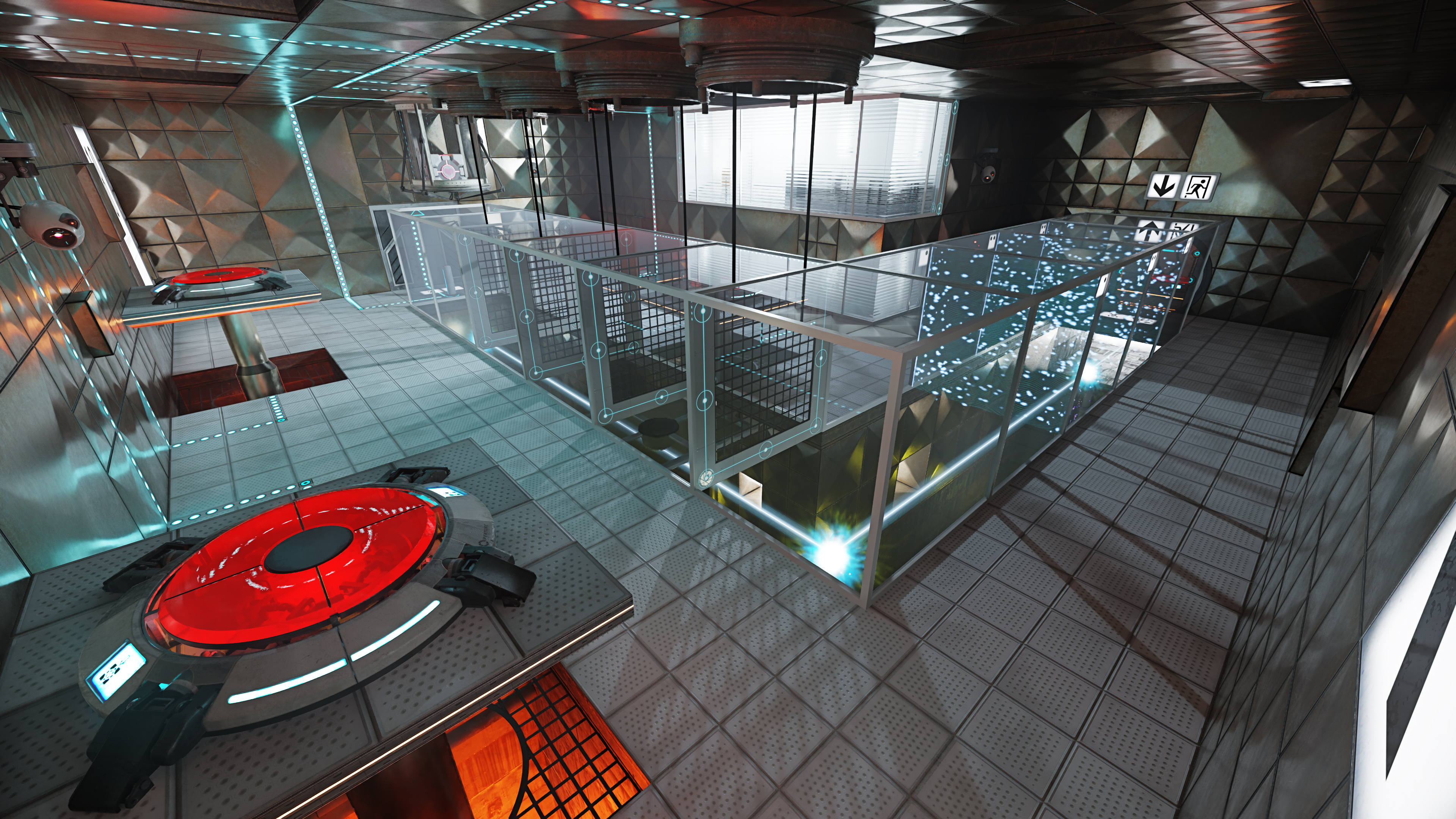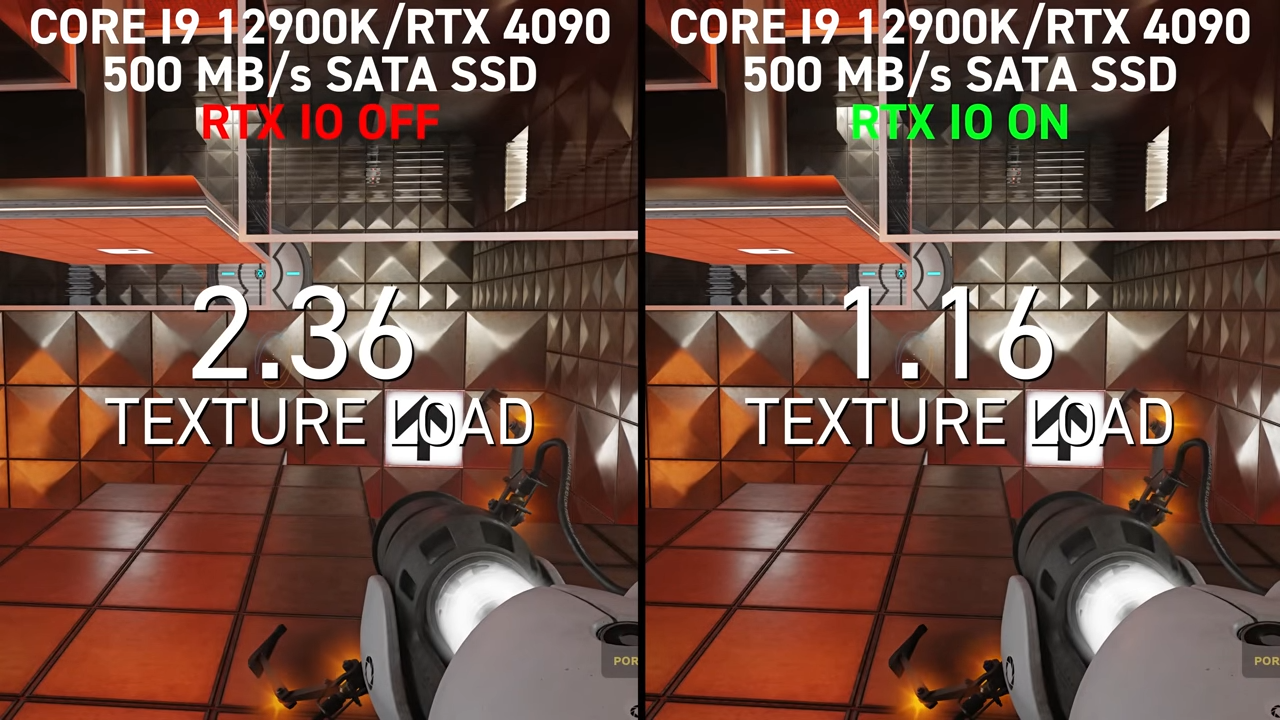
Digital Foundry recently took a sneak peek at Nvidia's new RTX IO GPU decompression technology in Portal: Prelude RTX, and found the tech can seriously improve game load times with modern SSD hardware. The game review outlet found that Nvidia's new storage-enhancing tech cut loading times in half, drastically accelerating the wait time for both game levels and high-resolution textures found in the game.
RTX IO is a new method of uploading game information to your graphics card, that reduces game loading times and decreases CPU utilization. Instead of transferring data to the CPU for decompression, RTX IO's GPU decompression transfers all game assets from storage to the GPU, where the GPU cores decompress the data at a significantly faster pace.
RTX IO is a term that Nvidia coined to comprise several technologies for GPU-based loading and asset decompression. In actuality, RTX IO is based on GDeflate, an open-source compression format Nvidia created that is supported by Microsoft's DirectStorage API, and Vulkan — with two new Nvidia Vulkan extensions. As a result, you don't need an Nvidia GPU to run RTX IO necessarily. All you need is a GPU that supports DirectStorage or Nvidia's new Vulkan extensions to run it.
In testing, Digital Foundry found that RTX IO was able to improve load time performance by roughly 50% in Portal: Prelude RTX. Testing was conducted on a Core i9-12900K and an RTX 4090, with the game stored on a 500MB/s SATA 3 SSD. With RTX IO disabled (featuring a specialized test build of the game), the game was able to load in 2.36 seconds. But by turning RTX IO on, the game was able to load everything in just 1.16 seconds — including the test chamber and the high-resolution textures.

In further testing with Gen 3 NVMe SSDs, the review outlet found that RTX IO was able to boost load time performance by an additional 90ms beyond what the SATA 3 drive was able to achieve. Additionally, RTX IO was also able to turbocharge the SATA 3 drive, making the slower SSD faster than the NVMe drive with RTX IO enabled (and RTX IO disabled on the NVMe drive).
Sub-three-second loading times are plenty fast for any video game, but from a benchmarking perspective. Cutting an extra second off of the load time is very impressive and a good demonstration of RTX IO's capabilities. It also improves the capabilities of any storage drive, whether or not you have the Best SSDs in your system.
This is just a glimpse of the capabilities can expect from RTX IO GPU decompression. Portal: Prelude RTX is a mod of a mod based on a game created 15 years ago, so there's no real-world benefit from having RTX IO unless you really crave sub-3-second load times. Rachet and Clank: Rift Apart will be the first game to truly test RTX IO when it arrives next week, and will hopefully show substantially more tangible results with RTX IO, with its inter-dimensional gameplay demanding instantaneous asset streaming.







